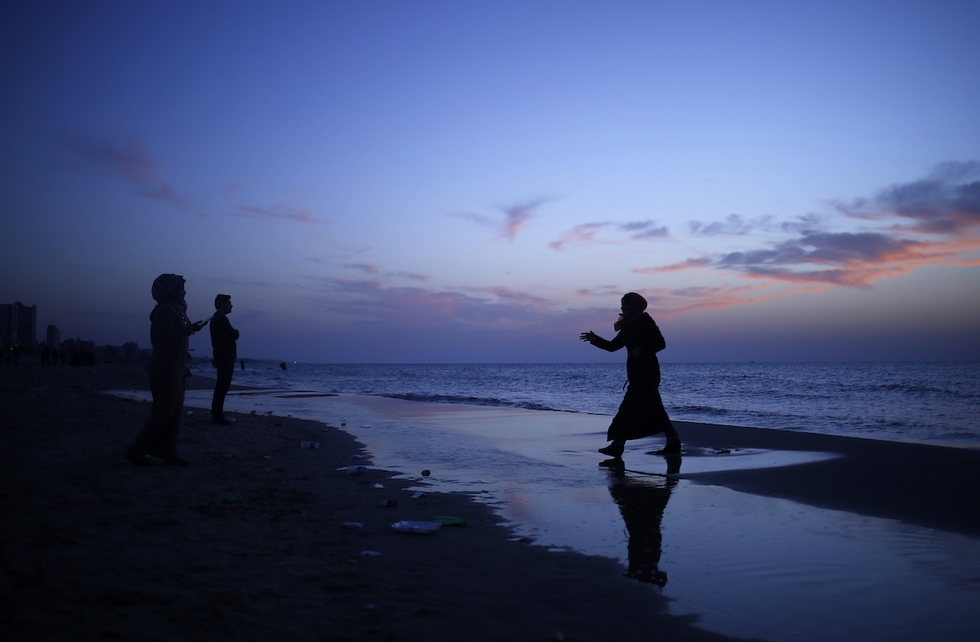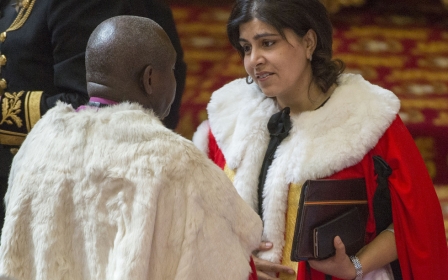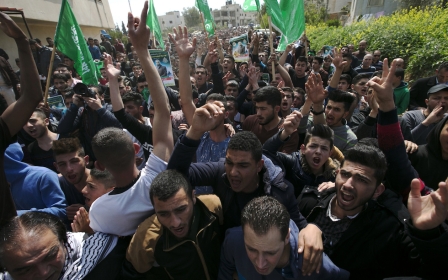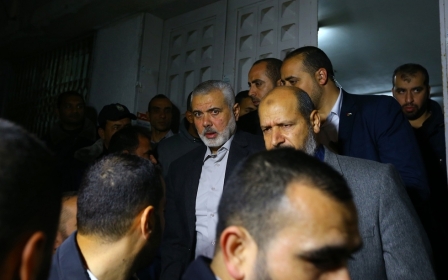Israel minister swims against tide with Gaza island plan

An Israeli minister has gone against the tide in proposing a way he says could alleviate conditions in the Gaza Strip while maintaining his country's security control - build an island nearby.
The unusual proposal has gained backing among some in the Israeli security establishment, but he is a long way from convincing everyone.
Those concerned with Palestinian rights say it would do little to address the root of the problem - the Israeli siege - and question whether it would further separate the Gaza Strip from the West Bank, making a future contiguous Palestinian state even more difficult to achieve.
Israeli Intelligence and Transport Minister Yisrael Katz argues that it is feasible and the best option for now, with the island's long-term status to be negotiated.
Katz has pushed the idea for several years, but has recently redoubled efforts to spread the word.
It would see an artificial island built in the Mediterranean Sea some 5km off the coast of the Gaza Strip, the Palestinian enclave under a decade-long Israeli blockade.
The island would be tiny at some 534 hectares (1,320 acres), only a fraction of the size of Malta, for example.
It would include infrastructure to provide the Gaza Strip with essential services it currently lacks, including desalination facilities for clean water and an electricity plant.
There would also be a freight harbour and an area for container storage, which Katz says will help open the Gazan economy to the outside world.
A bridge would connect it to Gaza, with one portion acting as a drawbridge. An airport could be considered at a later stage.
But a key point for Katz is Israel would control security around the island and in the port, with threats such as rockets and tunnels that could be used for attacks from the territory a major concern.
On the island itself, Katz envisions an international police force.
The cost would be some $5bn - but Katz argues it could be covered by private companies locating there.
"We have to find a way to deter Hamas from the other side, but let the residents, Palestinians, live their lives," Katz told AFP recently at his Tel Aviv office, a mock-up of his idea hanging on the wall.
"We are taking a risk here but I think it is a viable risk."
'What the real goal is'
Ideas for some form of seaport have gained ground in Israel due to humanitarian conditions in the enclave, where some two million Palestinians live.
Israel and Palestinian militants in Gaza have fought three wars since 2008.
The UN development agency has said the enclave, run by Islamist movement Hamas, could become uninhabitable by 2020, while others have warned of frustration spilling over and leading to fresh violence.
Israel strictly controls traffic into and out of Gaza, while the enclave's border with Egypt has also remained largely closed in recent years.
UN officials have called for the blockade to be lifted, but Israel says it is necessary to keep Hamas from obtaining weapons or materials to make them.
Gilead Sher, a former chief negotiator for the Israeli government, said some kind of seaport is needed.
Which kind "does not really matter if all the considerations and all the components of the decision-making are taken within a large context of Israel's policies," he said.
Sher said Israel must maintain security control for now and Hamas must buy into the plan.
Motives questioned
But others suggest less grandiose moves and question the motives behind an island.
Tania Hary, executive director of Gisha, an NGO monitoring Israel's Gaza blockade, said steps like removing restrictions on the types of goods Gazans can market to Israel and the West Bank could lead to immediate improvements.
"I think Katz's proposal raises questions about what the real goal is," she said, asking whether part of it involves continuing "the isolation of Gaza".
Raji Sourani of the Gaza-based Palestinian Centre for Human Rights was more blunt, saying of Israel that "we don't want anything from them."
"All that we want is for them to get off our shoulders," he said, referring to the blockade and the 50-year occupation of the West Bank.
"We want to be normal human beings."
Omar Shaban, an economist in Gaza, said the idea could be technically feasible, but it would have to include foreign supervision.
"Israel wants to preserve its security, but security is also in the interest of Palestinians and the entire region," he said.
Hamas did not respond to a request for comment.
Whether Katz, a senior member of Israeli Prime Minister Benjamin Netanyahu's right-wing Likud party, will be able to move his idea forward is another question.
Among Netanyahu's rivals within the Likud, Katz makes no secret of his desire to eventually be prime minister.
Still, he says his proposal deserves a fair hearing.
"We are willing to give them a gateway to the world - economic, humanitarian," he said.
New MEE newsletter: Jerusalem Dispatch
Sign up to get the latest insights and analysis on Israel-Palestine, alongside Turkey Unpacked and other MEE newsletters
Middle East Eye delivers independent and unrivalled coverage and analysis of the Middle East, North Africa and beyond. To learn more about republishing this content and the associated fees, please fill out this form. More about MEE can be found here.




